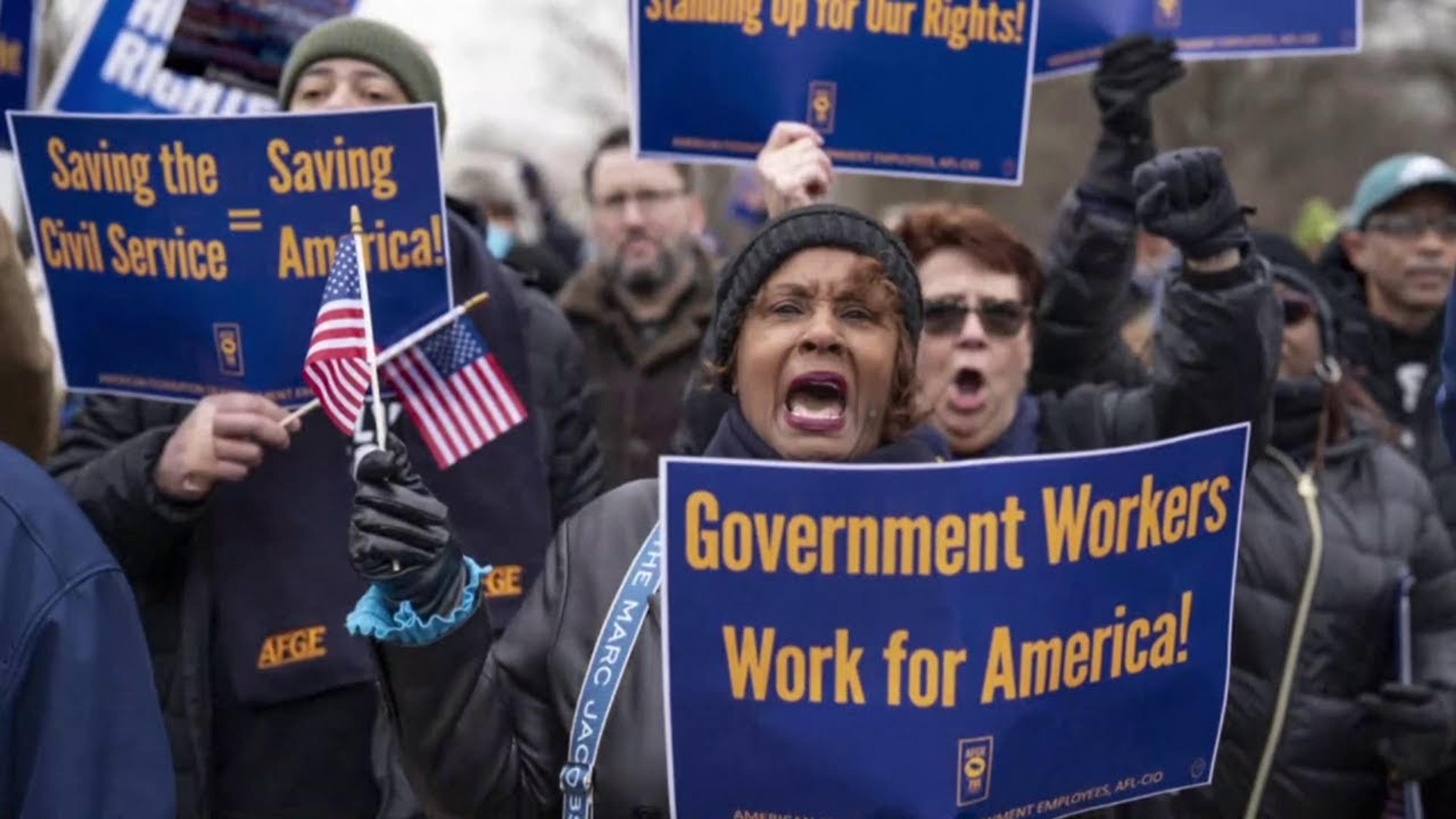

The US government went into shutdown on 1 October after Republicans and Democrats in Congress failed to pass appropriations funding government services.
Photo/screengrab/WDIO
Pacific workers breathe sigh of relief as US govt shutdown comes to an end. But anxiety lingers
Thousands of federal workers across Guam, American Sāmoa, and the Northern Mariana Islands are returning to work, bringing relief and questions about economic stability and trust in Washington.



Digital Lifeline: New app helps Sāmoans abroad reclaim their heritage

Northern Mariana Islands smash regional barriers with historic Auckland bronze

Sāmoa tightens control of district funds with new seizure powers


Tyrun re-imagines Niuean love in smooth new R&B single ‘Fila’

Digital Lifeline: New app helps Sāmoans abroad reclaim their heritage

Northern Mariana Islands smash regional barriers with historic Auckland bronze

Sāmoa tightens control of district funds with new seizure powers
When Donald Trump signed the federal funding bill on Thursday, NZ time, ending the 43-day US government shutdown, thousands of public-service workers in the United States' Pacific territories were among those finally able to return to work.
In Guam, American Sāmoa, and the Northern Mariana Islands, an estimated 49,000 workers (about 4.9 per cent of the territorial workforce) were directly affected by the closure of funding and the pause to federal grants.
For many Pasifika workers and their communities, this is more than a bureaucratic stop-gap, it is a matter of economic survival, family livelihoods, and trust in the US government’s reliability.
In American Sāmoa, where much of the territorial government funding comes via federal grants, Congresswoman Uifa’atali Amata Coleman Radewagen issued an early warning in a statement: “First of all, I absolutely opposed this needless government shutdown.
"The best scenario for American Sāmoa is steady, secure federal funding that preserves our services… I remain optimistic that this interruption will not last long."
Governor of American Sāmoa, Pulaali’i Nikolao Pula, told talanei.com that the government in Pagopago is closely monitoring the ongoing impact of the federal shutdown on the people.
“The people of American Samoa, like all Americans, share the same values of hard work, family and service. With the government shutdown, the disruption is real.
"We all depend on our paychecks to provide for our daily needs and timely support for our families.”
With key programmes and services on pause, federal agencies, infrastructure projects, and grant-funded jobs, one Pacific commentator earlier stated that the closure hit territories hard. “The real challenge is … this kind of shutdown undermines its reliability."

Now that the bill has been signed, the return to work brings relief, but also questions. In the wider US, media reports that about 670,000 federal employees have been furloughed and 730,000 were working without pay during the shutdown.
For isolated island economies heavily dependent on federal payrolls and grant-funded jobs, the impact rippled through households and local businesses.
Guam's Governor Lou Leon Guerrero told local media: “We have been here before. And like every storm, natural or man-made, we will weather it together…
"However, the scope and severity of the impact on Guam’s local government and our community will depend on both the length of the shutdown and the availability of prior-year funding.”
“People are hungry and people need to get food to feed their family,” RNZ Pacific has quoted Francine Salas, a welfare administrator in Guam, saying, amid food-assistance programmes facing shutdown risks.
As workers prepare to return to the job, calls are growing for more than just reopening. Pacific community leaders want assurances that back pay will be paid, that future disruptions will not repeat, and that territories will not be treated as an afterthought in federal budget battles.
A senior union leader in the US insists in a Washington Post report that, “It’s time to pass a clean continuing resolution and end this shutdown today … Put every single federal worker back on the job with full back pay today."
In the US Pacific territories, the mood is guarded optimism. The reopening gives many workers the immediate relief of salary resumption.
But in regions where a missed paycheck can trigger mortgage arrears, job stress, or household hardship, the legacy of the shutdown may linger.
Now comes the real work: rebuilding trust, ensuring territories are not disproportionately impacted in the next budget impasse, and making the return to work count.
As one Pacific commentator put it: the US government may write the legislation, but for workers in Guam, American Sāmoa, and the Northern Marianas, the proof of stability will be in the paycheck, the workplace, and the months ahead.